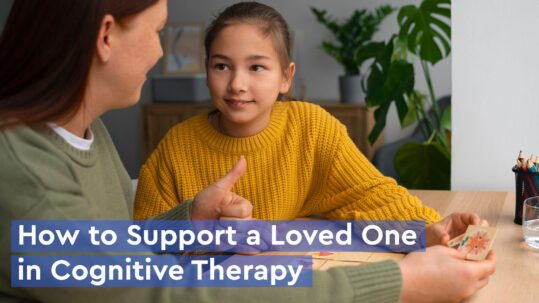The Negative Symptom of Schizophrenia
Schizophrenia has negative symptoms that affect a person’s ability to think, feel, and act. To clarify, negative symptoms do not automatically mean “bad”. While they might not be desirable, negative in this context means an absence of something. This absence could be joy or motivation to perform simple tasks. Negative symptoms take away from daily life and make it difficult for individuals with schizophrenia to go about their day. These negative symptoms require different treatment from the positive symptoms of schizophrenia, which are available widespread. In this blog article, we discuss the negative symptoms of schizophrenia.
What Are Negative Symptoms?
Negative symptoms of schizophrenia include social withdrawal, not speaking much, avolition, anhedonia, and having a lack of motivation. These symptoms may cause major delays in daily life and routines.
Sometimes, people with schizophrenia may have flat affect, or an inability to feel and express different emotions. When this happens, it can be difficult to be motivated at work or to socialize with others. Common tasks like getting out of bed, brushing one’s teeth, or eating may become very difficult for experiencing negative symptoms. These negative effects have primary and secondary characteristics within themselves. The primary characteristics are the symptoms of schizophrenia, and the secondary characteristics are symptoms that come from outside factors, like one’s medication or situational environment.
What are the common secondary effects of the negative symptoms of schizophrenia?
To fully understand the negative symptoms of schizophrenia, we need to break them down.
Social Withdrawal: Lack of interest in social interactions
A decreased interest in socializing, could be experiencing asociality, or the lack of motivation to create social connections is also a secondary negative symptom of schizophrenia. These can actually form from hallucinations or delusions, a positive symptom, which are typical symptoms of schizophrenia. One might feel as if they go into a social setting, others might harm them or affect them negatively.
Alogia: Reduction in speech
When facing alogia, one faces a reduction in their quantity of speech. This also includes a reduction of spontaneous speech, which typically means well formed sentences, providing context in ones sentences. Alogia even goes as far as being unable to form coherent sentences and express them in words.
Avolition: Lack of motivation
Experiencing avolition is when one feels extreme lack of motivation. One might have difficulties cleaning their home, cooking dinner, or even being around others. Avolition is associated with lacking “goal-directed behavior”, which essentially means doing something that requires tackling an obstacle. It does not mean that one will feel upset, they just do not have the motivation to tackle the tasks that they need to do.
Anhedonia: Inability to feel pleasure
A majority of people with schizophrenia experience anhedonia, or the lack of ability to feel pleasure. Similar to a lack of motivation with completing tasks, there is no interest in doing so, as these tasks do not deliver any pleasure. Some may find themselves uninterested in their favorite hobbies that typically bring them joy.
Flat Affect: Diminished expression of emotion
Flat affect is simply put to appear that one does not have any emotions or very little heightened emotions. Some of the commonalities of flat affect look like having a neutral or emotionless expression on one’s face, as well as decreased vocal expressions and expressive gestures. This can cause people to have difficulty interacting with others as it may be hard for people to express themselves.
What treatments are there for relieving the negative symptoms of schizophrenia?
When it comes to schizophrenia, treatment options may include a combination of psychotherapy and medication. Medications may include antidepressants, antipsychotics, and mood stabilizers, depending on the nature of one’s condition.
Psychotherapy for schizophrenia may help patients work on emotional regulation strategies, recognize psychotic thinking patterns, and help them develop effective coping strategies when they face obstacles from having schizophrenia. Patients may see a psychologist or social worker one-on-one or engage in group therapy to learn from others about their experiences having schizophrenia. When done right, psychotherapy can be very beneficial and help those living with schizophrenia live healthy and satisfying lives.
Lastly, some people with schizophrenia may seek cognitive remediation therapy to work on cognitive problems resulting from experiencing psychosis. This kind of therapy involves the practice and translation of cognitive skills to everyday life. Sometimes, people may use digital cognitive therapy tools or good cognitive therapy worksheets to work on these skills and then perform bridging activities or use a bridging worksheet to help them generalize their cognitive practice. This form of therapy is very popular, as it helps clients build the cognitive capacities needed for emotional regulation.
Conclusion
The negative symptoms of schizophrenia can be debilitating. Those living with schizophrenia may experience social withdrawal, lack of speech, lack of motivation, inability to feel pleasure, or flat affect. People experiencing negative symptoms of schizophrenia may seek different forms of treatment. Some treatments people with schizophrenia may seek include medication, psychotherapy, cognitive remediation therapy, or a combination of the three. With time and intervention, those experiencing the negative symptoms of schizophrenia may find relief.









